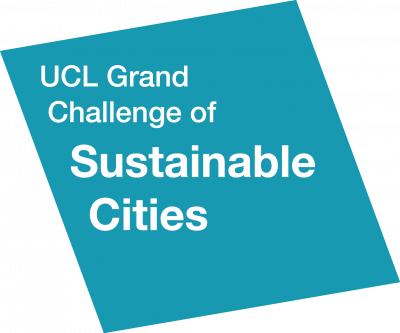'In Otto Koeniger's footsteps
'In Otto Koeniger's footsteps - workshops to encourage engagement between HEIs and cities for Government of India's Smart Cities Mission Initiative
2 October 2017
In 2017 Debananda Misra (Institute of Education) and Rodrigo Caimanque Leverone (Bartlett) received £2,000 from the Grand Challenges Doctoral Student's Small Grants Scheme for their proposal to develop collaborations between researchers and urban policy makers in India.
This Grand Challenges grant will bring faculty members, researchers, students, policy makers, city officials and practitioners together to discuss topics related to 'urban transformation' . The collaboration is expected to extend beyond data collection to involve aspects such as programme formulation, implementation, impact evaluation and policy framing. The collaboration may involve faculty/researchers/student from universities, and one or multiple stakeholders in cities involved in urban transformation programmes (i.e. Smart Cities Mission, Jawaharlal Nehru National Urban Renewal Mission and Atal Mission for Rejuvenation and Urban Transformation).
Background
In 2016, a World Bank report* called the urbanisation in South Asia, including India, as "messy and hidden", constraining the concentration of economic activity that could bring about faster improvements in prosperity and living conditions. Institutional difficulties in dealing with pressures on infrastructure, basic services, land, housing and the environment lie at the heart of the relative lack of liveability of the cities in India, leading urbanisation and development towards stagnation. In response, policy led interventions such as the Smart Cities Mission by the Government provide an alternative to set the momentum in the right direction to tackle some of these difficulties. The effectiveness of such policies lie in embracing the diverse and complex situation in an inclusive manner, and in articulating the different constituents' interpretations of the policy for its implementation. In this endeavour, universities can contribute by leveraging their knowledge production role to understand and explain the varied meanings that the diverse constituents of urbanisation derive from such policies, and can mediate some of the inherent conflicts faced by constituents involved in policy implementation. Universities can help to critically understand the challenges, opportunities and implications of such policies in an objective and impartial manner. Lastly, universities can take a leading role to not just to build adequate human capital needed to deal with urbanisation but also institutionalise learning in the social and cultural context of the cities. If universities and cities can work cohesively, urbanisation processes can potentially move from being "messy and hidden" to "articulated and intended".
*Source: Leveraging Urbanization in South Asia: Managing Spatial Transformation for Prosperity and Livability. World Bank. Available at https://openknowledge.worldbank.org/handle/10986/22549
Debananda (Deb) Misra
Department of Education, Practice and Society, UCL Institute of Education, University College London
Deb has research interests are in Higher education policy, Public engagement of universities, Knowledge production, Management and governance of universities. Deb comes with over seven years of working experience in higher education management. As part of his doctoral thesis, he is investigating the role of regional engagement in development of new HEIs - established in the past two decades. He applies mixed methods research techniques in his research projects.
Rodrigo Caimanque Leverone
Development Planning Unit, Bartlett, University College London
Rodrigo's research interests are in governance, urban politics, and processes of city regeneration. In this regard, his doctoral research is focused on the conformation of different urban coalitions throughout several strategies of urban regeneration in the city of Valparaiso, Chile. The analysis is based on the role and interaction of actors at different spatial scales involved in urban decision-making, and how these relations become reflected in places as an expression of uneven development. Rodrigo also has an extensive background working in urban planning in both public and private sector.
 Close
Close


